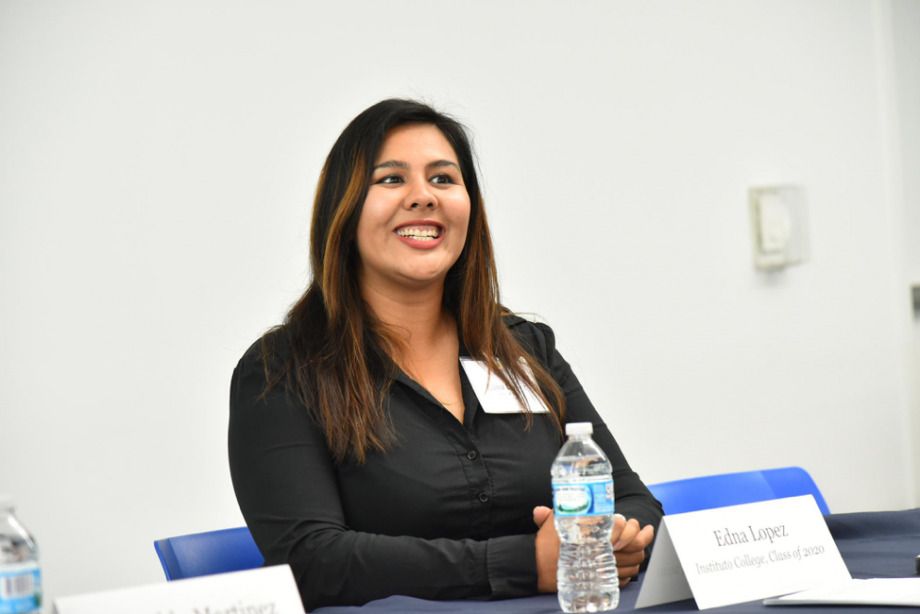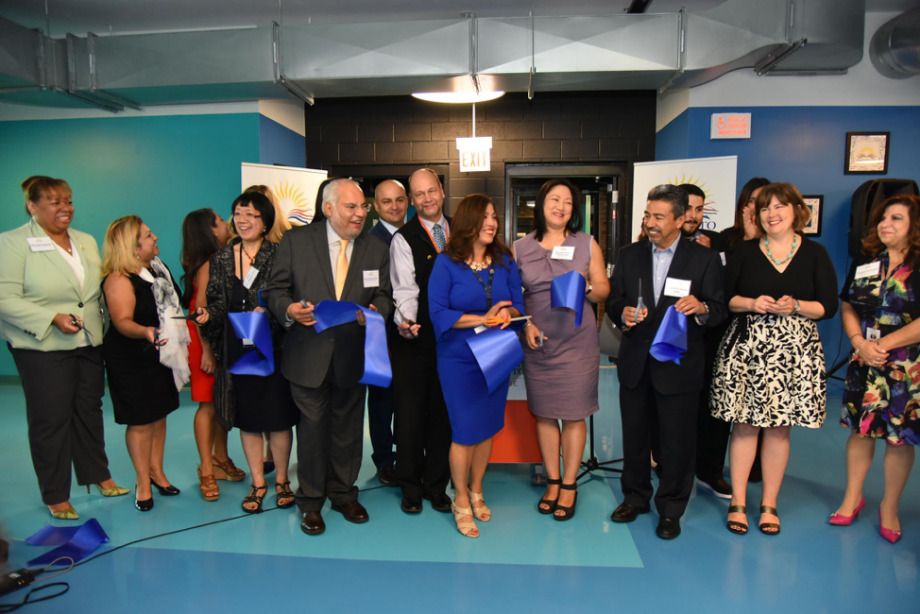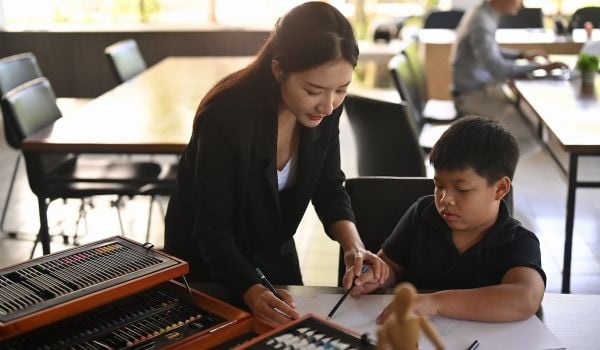Edna Lopez has seen her mother, grandmother, and aunt suffer from cancer and understands the importance of feeling at ease in hospital settings. She’s also a Spanish-speaking Latina who has noticed concerns lost in translation due to language barriers between patients and hospital staff.
That’s why she wants to be a nurse.
“It’s just being able to care and connect … and help a person feel more human and independent,” Lopez says.
Lopez will be among the first cohort of nursing students to attend the new Instituto College, a two-year school that is a product of the nonprofit Instituto del Progreso Latino. Based in the west side Chicago neighborhood of Pilsen, the nonprofit has been known for offering workforce development and career pathway programs to Latinos and others in the South, Southwest and West sides of Chicago.
Classes will be held in the evening at Instituto’s existing building that’s also used as a charter school in the daytime.
The two-year college, which is expected to begin classes in late August, will offer associate degrees to prepare students in what’s described as “middle-skill jobs” that are in high demand. It’s starting with a degree in nursing this fall.
“Middle-skills” jobs are those that demand further schooling and training than a high school diploma but less than a four-year college degree. These jobs have historically served as the springboard into the middle class, with positions like nursing and sales assistants closely tied to “ladders of progression,” as the Harvard Business School notes in the 2014 report “Bridge the Gap: Rebuilding America’s Middle Skills.”
“Over the past three decades, however, the United States steadily lost its capability to create and sustain enough jobs to support the realization of the American dream for millions of workers,” says the Harvard report.

Edna Lopez. (Credit: Instituto del Progreso Latino)
That is where Instituto has worked to fill the gap. The college is a natural evolution of the organization, says Karina Ayala-Bermejo, president and chief executive officer of Instituto del Progreso Latino. For example, the organization’s Carreras en Salud program, has for more than a decade, trained low-income, low-English proficient learners for employment in nursing.
“We are responding to the needs of our students, the needs of employers,” says Ayala-Bermejo. “We know that in order to impact a community and have economic mobility that we really have to have in-demand fields that pay a well-living sustainable wage.”
To Ayala-Bermejo, training students in these fields can “start breaking that cycle of poverty.”
And, according to a 2015 JPMorgan Chase report, Chicago employers have difficulty filling certain middle-skill positions in the healthcare industry that could pay up to $22.16 per hour.
In Chicago, where the Illinois Center for Nursing also estimates a shortage of 21,000 nurses by 2020, opening this school makes sense, Ayala-Bermejo said.
The school will serve 24 students in its first semester with the goal of graduating 500 in the first five years. Aside from nursing, the college has also been approved for five other areas: healthcare leadership; manufacturing management and supervision; production and operation; networking technology; and organizational leadership. It will also offer students financial coaching and employment counseling.
There will be two full-time nursing instructors and potentially three part-time nursing faculty. Instituto College is also partnering with Mount Sinai Medical Center and Norwegian American Hospital to offer clinicals.
A $500,000 grant from JPMorgan Chase will be used as seed money to fully fund tuition for the first round of students, pay for the instructors, and help cover any other operational costs. Some renovations will also be made to the existing building. It’s part of a $40 million commitment from JPMorgan Chase to invest in underserved areas of Chicago.
The federal financial aid process is not yet available to the college. It will be applicable once the first round of students goes through the program, according to Instituto del Progreso Latino.
To Dr. Yvonne Lau, dean of academics and career pathways at Instituto del Progreso Latino, opening the school is all about responding to the needs of their students.
“What we feel we’re doing by opening the college, is really strengthening the pipeline from high school to now community college,” Lau says.
Ayala-Bermejo adds that it’s important to recognize that their “non-traditional students” want to have a pathway that immediately provides a significant change to their income.
“We believe a four-year university degree is not necessary to make those important economic mobility shifts that are necessary to happen, sooner rather than later,” she says.

Alejandra Molina is a Next City Equitable Cities Fellow for 2018-2019. Previously, she was a reporter for the Southern California News Group where she covered cities, immigration, race, and religion. In her decade-long career, she's reported how gentrification has affected downtown Santa Ana in Orange County, followed up how violent shootings have affected families and neighborhoods, and reported how President Donald Trump has impacted undocumented communities in the Inland Empire. Her work has appeared in The Press-Enterprise in Riverside, The Orange County Register, The Los Angeles Daily News, and The Mercury News in San Jose. She graduated with a bachelor’s degree in broadcast journalism from the University of La Verne, where she taught an introductory journalism course as an adjunct professor.
















